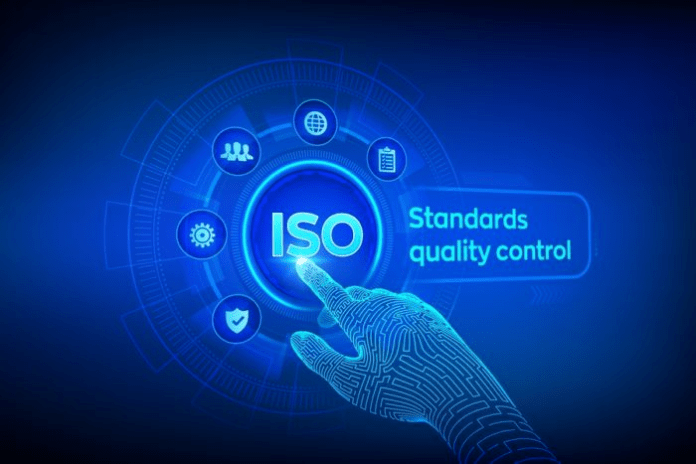In the highly competitive manufacturing industry, maintaining high standards of quality, efficiency, and customer satisfaction is crucial for success. One way for manufacturing companies to achieve these objectives is by obtaining ISO certification. ISO certification demonstrates compliance with international standards and signifies a commitment to excellence in various aspects of business operations. In this article, we will explore the benefits of ISO certification for a manufacturing company and how it can contribute to its overall success.
Introduction
ISO (International Organization for Standardization) is an independent international body that develops and publishes standards recognized globally. ISO certification is a formal recognition that a company meets specific requirements and complies with industry best practices. Let’s delve into the advantages of ISO certification for manufacturing companies.
ISO Certification: An Overview
ISO certification encompasses various standards relevant to manufacturing companies, such as ISO 9001 (Quality Management Systems), ISO 14001 (Environmental Management Systems), and ISO 45001 (Occupational Health and Safety Management Systems). These certifications provide a framework for implementing effective management systems and ensuring continuous improvement.

Enhancing Credibility and Reputation
ISO certification enhances a manufacturing company’s credibility and reputation in the industry. It signifies that the company adheres to globally recognized standards, demonstrating its commitment to quality, customer satisfaction, and environmental responsibility. ISO certification serves as an assurance to customers, partners, and stakeholders that the company operates with integrity and professionalism.
Meeting Customer Expectations
ISO certification helps manufacturing companies meet and exceed customer expectations. ISO 9001, in particular, focuses on customer satisfaction and continuous improvement. By implementing ISO standards, companies establish robust quality management systems that ensure consistent product quality, timely delivery, and effective customer service. Meeting customer expectations ultimately leads to increased customer satisfaction and loyalty.

Improving Quality Management Systems
ISO certification promotes the implementation of effective quality management systems. ISO 9001 provides a framework for systematic quality management, emphasizing processes, risk management, and performance evaluation. By adopting ISO 9001, manufacturing companies can identify and address quality-related issues, reduce defects, improve product consistency, and enhance overall operational efficiency.
Ensuring Regulatory Compliance
Manufacturing companies face numerous regulatory requirements, both at the national and international levels. ISO certification assists companies in meeting these requirements effectively. ISO standards align with regulatory frameworks, and certification ensures that the company’s processes and practices are in line with legal obligations. Compliance with ISO standards minimizes the risk of non-compliance with regulatory authorities, avoiding penalties and legal consequences.

Streamlining Processes and Increasing Efficiency
ISO certification encourages manufacturing companies to streamline their processes and optimize resource utilization. By implementing ISO standards, companies identify inefficiencies, eliminate waste, and improve overall operational efficiency. Streamlined processes lead to cost savings, reduced lead times, increased productivity, and improved customer satisfaction.
Facilitating International Trade
ISO certification facilitates international trade for manufacturing companies. Many international buyers and partners prefer to work with ISO-certified companies as it ensures consistent quality and compliance with global standards. ISO certification eliminates barriers to trade and opens doors to new markets, providing a competitive edge in the global marketplace.
Boosting Employee Morale and Engagement
ISO certification promotes a culture of continuous improvement and employee involvement. Engaging employees in the certification process fosters a sense of ownership and pride in their work. Employees become more aware of quality, safety, and environmental aspects, leading to increased morale, teamwork, and commitment to organizational goals.

Conclusion
ISO certification offers numerous benefits to manufacturing companies. From enhancing credibility and reputation to improving quality management systems and meeting customer expectations, ISO certification plays a pivotal role in achieving operational excellence. By embracing ISO standards, manufacturing companies can enhance their competitive position, expand their market reach, and drive sustainable growth.
FAQs
- What is ISO certification?
ISO certification is a formal recognition that a company meets specific requirements and complies with international standards developed by the International Organization for Standardization (ISO). It signifies a commitment to excellence in various aspects of business operations.
- How does ISO certification benefit manufacturing companies?
ISO certification enhances a manufacturing company’s credibility, helps meet customer expectations, improves quality management systems, ensures regulatory compliance, streamlines processes, facilitates international trade, and boosts employee morale and engagement.
- Which ISO standards are relevant to manufacturing companies?
ISO 9001 (Quality Management Systems), ISO 14001 (Environmental Management Systems), and ISO 45001 (Occupational Health and Safety Management Systems) are among the ISO standards relevant to manufacturing companies.
- How does ISO certification contribute to customer satisfaction?
ISO certification promotes the implementation of effective quality management systems, ensuring consistent product quality, timely delivery, and effective customer service. Meeting customer expectations leads to increased customer satisfaction and loyalty.
- Does ISO certification have global recognition?
Yes, ISO certification has global recognition. ISO standards are recognized and respected worldwide, and ISO certification signifies compliance with internationally accepted best practices and standards.
